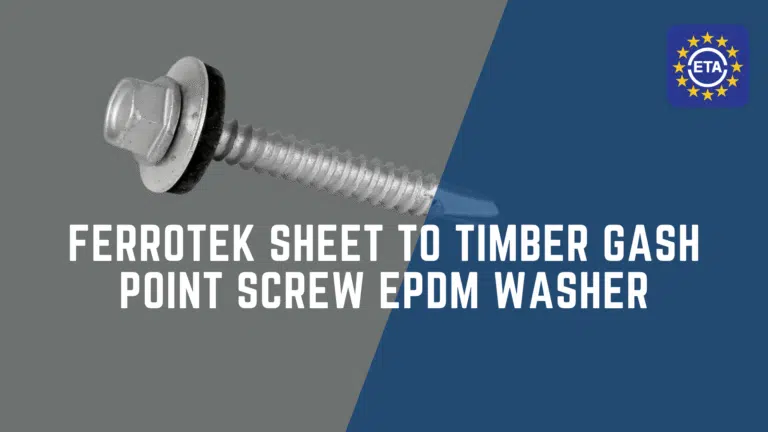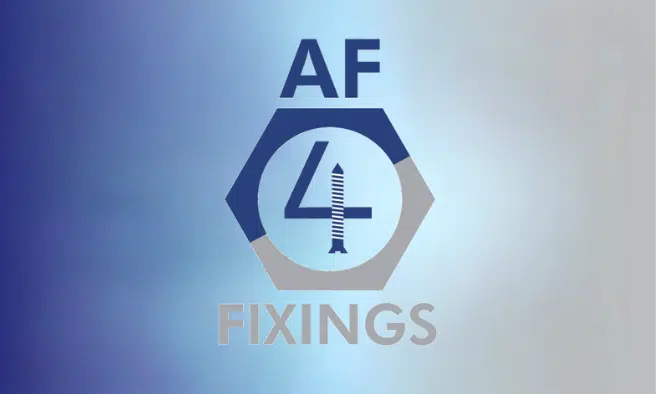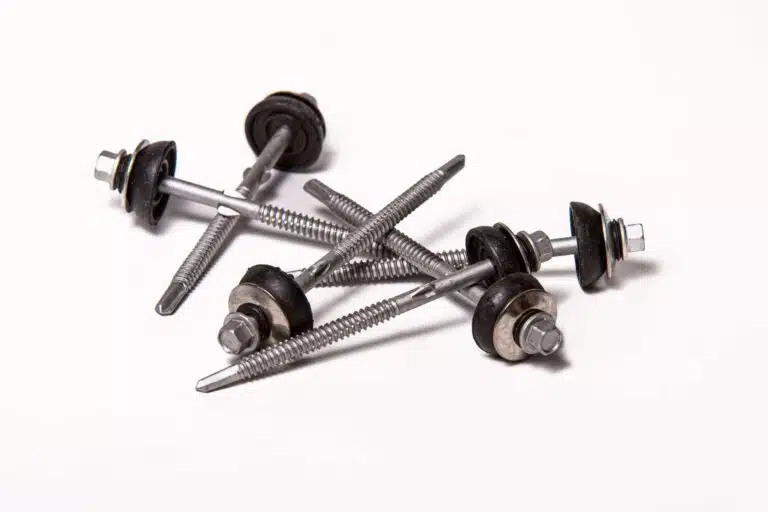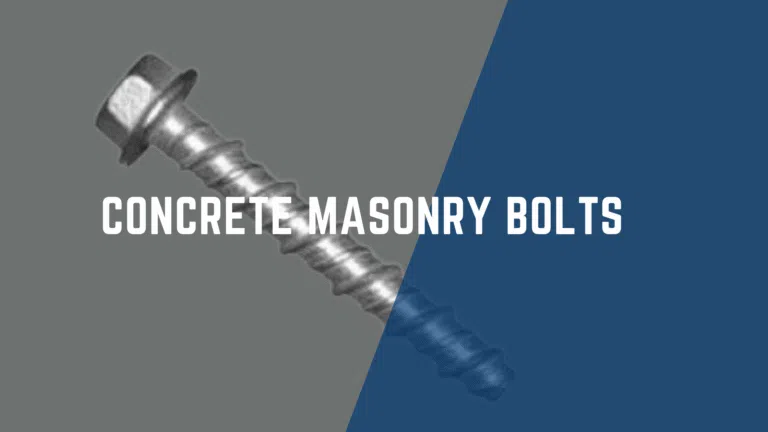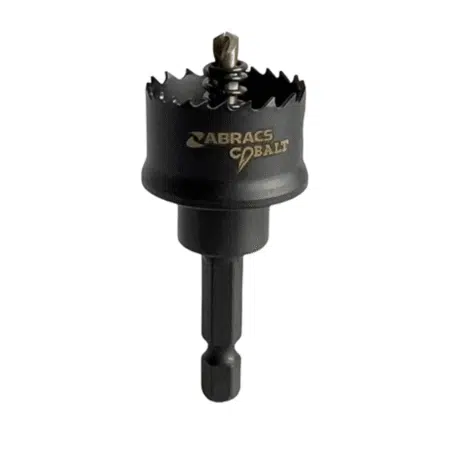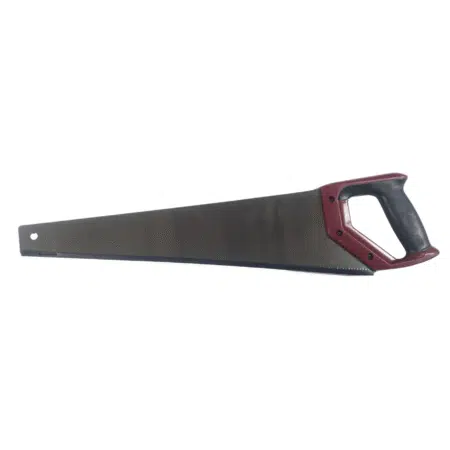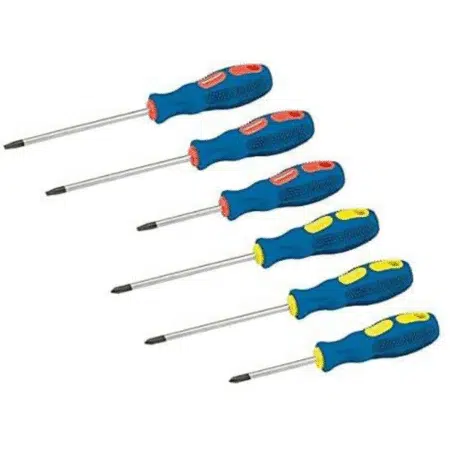This guide provides you with necessary insights into concrete masonry bolts that are not certified, outlining both benefits and potential risks involved in their use. You’ll learn about their applications, installation techniques, and load capacities, ensuring you make informed decisions for your projects. Understanding these factors is important for your safety and effectiveness in securing fixtures. Dive in to enhance your knowledge and confidence in utilising these integral components of masonry work. As you explore this concrete masonry bolts overview, you’ll discover how their design and construction can influence overall project integrity. Additionally, we will delve into common misconceptions and best practices that can further optimize their use, allowing for safer and more reliable installations. Engaging with this information will empower you to choose the right fasteners to suit your specific masonry needs.
Key Takeaways:
- Concrete masonry bolts are designed for use in anchoring applications, providing strong and reliable connections within concrete structures.
- Installation techniques and proper selection of bolt types are imperative to ensure optimal performance and safety, especially in non-certified applications.
- Understanding load capacities and environmental factors is important for the effective use of concrete masonry bolts in various construction scenarios.
 Decoding the Anatomy of Concrete Masonry Bolts
Decoding the Anatomy of Concrete Masonry Bolts
The construction and functionality of concrete masonry bolts hinge on specific components that define their efficacy and reliability. Understanding their anatomy equips you with the insights needed for selecting the right bolt for your projects, ensuring durability and safety in anchoring applications.
Material Composition and Properties
Concrete masonry bolts are often crafted from high-strength steel, providing superior resistance to shear and tension forces. Some variants feature a zinc coating or other protective finishes to enhance corrosion resistance, making them suited for outdoor or moisture-prone environments. You’ll find that these properties contribute to the bolt’s longevity and overall performance in various applications.
Design Features that Matter
Key design features such as thread type, head design, and length significantly influence performance. The threads are specifically engineered for optimal grip and anchoring capability, while varying head designs—like hex or flat heads—allow for compatibility with different tools. The length of the bolt must also correlate with the intended application to ensure it penetrates the masonry effectively.
For instance, coarse thread patterns are commonly used to facilitate easier installation into concrete, providing greater holding strength. Meanwhile, a washer under the bolt head can distribute load more evenly, preventing premature failure. Matching the appropriate bolt length with the thickness of the material you’re anchoring into is vital for achieving optimal anchorage, reducing the risk of bolt pull-out or damage to the masonry itself.
The Installation Game: Best Practices for Maximum Durability
Proper installation of concrete masonry bolts is vital for achieving maximum durability and reliability. Start by ensuring that the correct type and size of bolt is selected for your specific application. Prior to drilling, clean the surface of the concrete to eliminate debris. This ensures optimal adherence. Additionally, verify that you’re using the right drill bit and maintaining the correct torque settings during installation, as improper handling can lead to compromised strength and a decrease in performance over time. After installation, allow the bolts to cure properly before subjecting them to load. It’s essential to understand how to use concrete masonry bolts effectively, which includes regularly checking for any signs of wear or loosening. Doing so will help maintain the structural integrity of your project and extend the lifespan of the installation.
Tools and Techniques for Effective Installation
Effective installation relies not only on the right materials but also on the tools you choose. Utilise a reliable hammer drill with a masonry bit for precision drilling into concrete. Invest in torque wrenches to ensure snug fastening without over-tightening, which could damage the bolt. Moreover, employing a level or measuring tape when positioning bolts can guarantee alignment and stability in your project. These tools, when used correctly, contribute significantly to the robustness of your installation.
Common Pitfalls and How to Avoid Them
Neglecting to account for specific concrete requirements often leads to installation failures. Each concrete type may require different approaches. Skipping surface preparation is another frequent oversight; dirt or moisture can weaken the bond and impact the longevity of the connection. Regularly check your drill bits to ensure they’re not worn down, as using dull bits can impede accuracy. Understanding these common pitfalls allows you to take proactive measures that bolster the success of your installations.
Many installers overlook the importance of surface preparation, which is non-negotiable for optimal performance. If you fail to clear dust or debris, the hardened concrete may not adequately grip the masonry bolt, leading to potential failure under stress. Equally, not double-checking the depth of the drilled hole can result in insufficient anchorage, making your installation vulnerable to slippage or breakage. Pay attention to details like ensuring adequate clearance for expansion — this can enhance the lifespan and functionality of your bolts significantly.
 The Role of Concrete Masonry Bolts in Structural Integrity
The Role of Concrete Masonry Bolts in Structural Integrity
Concrete masonry bolts play a pivotal role in ensuring the structural integrity of various constructions. Their ability to firmly anchor components to concrete substrates helps distribute loads evenly, subsequently preventing structural failure. When correctly installed, these bolts enhance the durability and safety of buildings, bridges, and other infrastructures by averting shifts and movements that could compromise structural soundness. A concrete masonry bolts overview reveals the different types and specifications available, allowing engineers and builders to select the most suitable options for their specific needs. Additionally, proper maintenance and inspection of these bolts are essential to ensure their long-term effectiveness, as environmental factors and wear can impact their performance over time. By providing a reliable fastening solution, concrete masonry bolts contribute significantly to the overall stability and longevity of construction projects.
Load-Bearing Capacities Explained
The load-bearing capacity of concrete masonry bolts is a critical measure of their strength and effectiveness in anchoring applications. Typically, these bolts can support considerable weight, depending on their size, material, and installation method. For instance, a ¾-inch diameter bolt can bear loads upward of 2,500 pounds, making them suitable for heavy-duty projects demanding rigorous durability.
Real-World Applications and Case Scenarios
In practical applications, concrete masonry bolts find use in a variety of contexts, from anchoring machinery in industrial settings to securing structural elements in residential buildings. A notable example is their application in the construction of high-rise buildings, where large mechanical systems require stable connections to concrete frameworks to mitigate vibrations and movements.
Consider a high-rise office building that utilised concrete masonry bolts to secure its HVAC systems. In this scenario, the stability of heavy machinery was paramount for operational efficiency and safety. The bolts anchored the units to the concrete floor, facilitating efficient weight distribution and minimising vibrations. This ensured that tenants could enjoy a comfortable environment without disruption. Furthermore, in bridge constructions, these bolts secure components against harsh weather and traffic loads, enhancing longevity and reliability. Overall, understanding these real-world applications underscores the integral part concrete masonry bolts play in modern construction practices.
The Pitfalls of Non-Certified Concrete Bolts
Using non-certified concrete bolts may seem like a cost-effective choice, but be wary of the potential pitfalls. Without proper certification, you can’t guarantee the bolt’s performance under load or its resistance to environmental factors. These uncertified bolts can lead to structural weaknesses, compromising safety in critical applications. Ultimately, saving a few pounds on fasteners could result in far greater expenses due to failures or accidents down the line.
Understanding Certification and Its Implications
Certification assures you that concrete masonry bolts meet specific standards for performance and safety. These standards are developed through extensive testing and are often aligned with building codes and industry regulations. Certified bolts provide peace of mind, knowing they’ve been scrutinised for strength, durability, and reliability, making them a safer choice for structural applications. In addition, a concrete masonry bolts overview reveals that these fasteners are designed to withstand various environmental conditions, ensuring long-term performance. By choosing certified options, builders can effectively mitigate risks associated with structural failures, which could lead to significant safety hazards and costly repairs. Ultimately, investing in certified concrete masonry bolts contributes to the overall integrity of the construction project.
Risks and Consequences of Skipping Certification
Neglecting to use certified concrete bolts introduces significant risks that could jeopardise your project. The structural integrity of the installation may be compromised due to inferior materials or manufacturing processes, potentially leading to catastrophic failures. You may also face legal repercussions if non-compliant materials lead to injuries or property damage, resulting in costly litigation or insurance claims.
Evaluating the risks associated with non-certified concrete bolts reveals a concerning reality. When you choose uncertified options, you expose your project to failures that can manifest as rust, corrosion, or fatigue, undermining the entire structure. For instance, a poorly chosen bolt in a high-stress environment could snap under load, resulting in injuries or extensive property damage. Such incidents can cripple your project’s timeline and inflate costs exponentially, far exceeding the initial savings on bolts. Prioritising certified materials not only secures your investments but also protects your reputation as a responsible builder or contractor.
 Navigating the Market: How to Choose Wisely
Navigating the Market: How to Choose Wisely
Selecting the right concrete masonry bolts requires diligence and informed decision-making. Consider factors such as the specific application, environmental conditions, and load requirements to ensure you make a choice that meets your project’s demands and safety standards. Investigating product reviews, seeking recommendations from industry professionals, and comparing various brands will aid in finding high-quality options tailored to your needs.
Key Indicators of Quality and Reliability
Quality concrete masonry bolts often exhibit visible indicators such as robust manufacturing finishes, precise threading, and verified material specifications. Look for certifications or compliance with industry standards, as these indicators reflect adherence to safety protocols and performance reliability. Additionally, reputable manufacturers will provide detailed specifications and guarantees, reinforcing the trustworthiness of their products. Furthermore, analyzing concrete masonry bolt statistics can provide valuable insights into their performance and durability under various conditions. Understanding these statistics will help consumers make informed decisions when selecting products for their specific applications. Always consider the historical data and user reviews to gauge the effectiveness and reliability of different brands in real-world scenarios.
Evaluating Cost vs. Performance
Optimal performance in concrete masonry bolts often necessitates a balance between price and quality. Low-cost options may compromise on strength or durability, leading to potential safety hazards or increased long-term expenses due to replacements. A comprehensive assessment of your project’s requirements, including load-bearing capacities and environmental factors, will help you determine the most suitable bolts without overspending or undermining safety.
When weighing cost against performance, consider the long-term implications of your choice. Opting for a more expensive, high-quality bolt may save you from costly repairs and replacements down the line, particularly in heavy-load or outdoor applications where environmental factors can deteriorate cheaper alternatives. Gathering cost data alongside performance metrics will empower you to make strategic purchasing decisions that ensure both safety and project durability.
To wrap up
Summing up, this ultimate guide to concrete masonry bolts offers you the imperative knowledge needed to select and utilise these fasteners effectively. By understanding their characteristics, applications, and installation techniques, you can enhance your projects and ensure lasting results. Armed with this information, you can approach your work with confidence, knowing that you have the tools necessary to make informed decisions about securing your masonry applications. Additionally, familiarizing yourself with the concrete masonry bolts installation steps will streamline the process and minimize errors, ultimately saving you time and resources. Whether you’re a seasoned professional or a DIY enthusiast, mastering these techniques will empower you to tackle projects with greater efficiency and precision. As you gain experience, you’ll discover the subtle nuances that can elevate the durability and performance of your masonry work.
FAQ
Q: What are concrete masonry bolts and where are they used?
A: Concrete masonry bolts are specialised fasteners designed for anchoring objects to concrete or masonry surfaces. They typically consist of a threaded rod, a large washer, and a nut. Common applications include securing metal brackets, structural supports, and various fixtures in both residential and commercial construction projects.
Q: What does it mean when concrete masonry bolts are described as ‘not certified’?
A: When concrete masonry bolts are labelled as ‘not certified’, it indicates that they have not undergone formal testing or certification by recognised standards organisations. This means that their performance and reliability in specific applications may not have been verified, which may impact the choice of using them in critical projects. Without certification, there is a higher risk of failure, which could lead to structural issues or safety hazards. Therefore, in concrete masonry bolt applications, it is crucial to consider the implications of using uncertified products. Project managers and engineers should prioritize certified materials to ensure compliance with industry standards and to ensure the integrity of their constructions. As a result, selecting concrete masonry bolts for construction that are certified is advisable to ensure safety and compliance with industry regulations. Uncertified bolts may pose risks, especially in load-bearing applications, where the integrity of the structure is paramount. Therefore, it’s crucial for engineers and contractors to prioritize quality and verification when sourcing these materials.
Q: How do I select the right size concrete masonry bolt for my project?
A: Selecting the appropriate size of concrete masonry bolt depends on factors such as the weight of the object being secured, the thickness of the material being anchored, and the specific load requirements. It is advisable to consult manufacturer guidelines or a structural engineer to determine the optimal size and type for your specific use case.
Q: What installation tools are required for concrete masonry bolts?
A: The installation of concrete masonry bolts typically requires tools such as a hammer drill equipped with a masonry bit, a torque wrench for tightening the bolts, and the appropriate socket set or spanner. Proper safety equipment, such as eye protection and gloves, is also recommended during the installation process. Additionally, it is essential to follow a concrete masonry bolt installation guide to ensure the process is executed correctly and safely. This guide typically outlines the specific measurements, torque specifications, and techniques necessary for a successful installation. By adhering to these guidelines, the longevity and stability of the installation can be significantly enhanced.
Q: Are there any limitations or risks associated with using ‘not certified’ concrete masonry bolts?
A: Yes, using ‘not certified’ concrete masonry bolts may carry certain risks, such as potential failure under load or insufficient resistance to environmental factors like moisture and corrosion. These bolts may not provide the same performance assurances as certified products. It is important to evaluate the specific requirements of your project and consider consulting with a professional before use. In addition to understanding the risks associated with uncertified products, it’s essential to educate yourself on how to use concrete masonry bolts properly to ensure maximum effectiveness. Proper installation techniques, such as pre-drilling and using the appropriate torque settings, can help mitigate some of the risks. Furthermore, always refer to manufacturer guidelines and best practices to achieve optimal results in your project. Understanding the different types of concrete masonry bolts is crucial for making an informed decision. For a comprehensive overview, check out resources where concrete masonry bolts explained in detail can help clarify their specifications and applications. This knowledge can further assist in ensuring the safety and longevity of your construction projects.

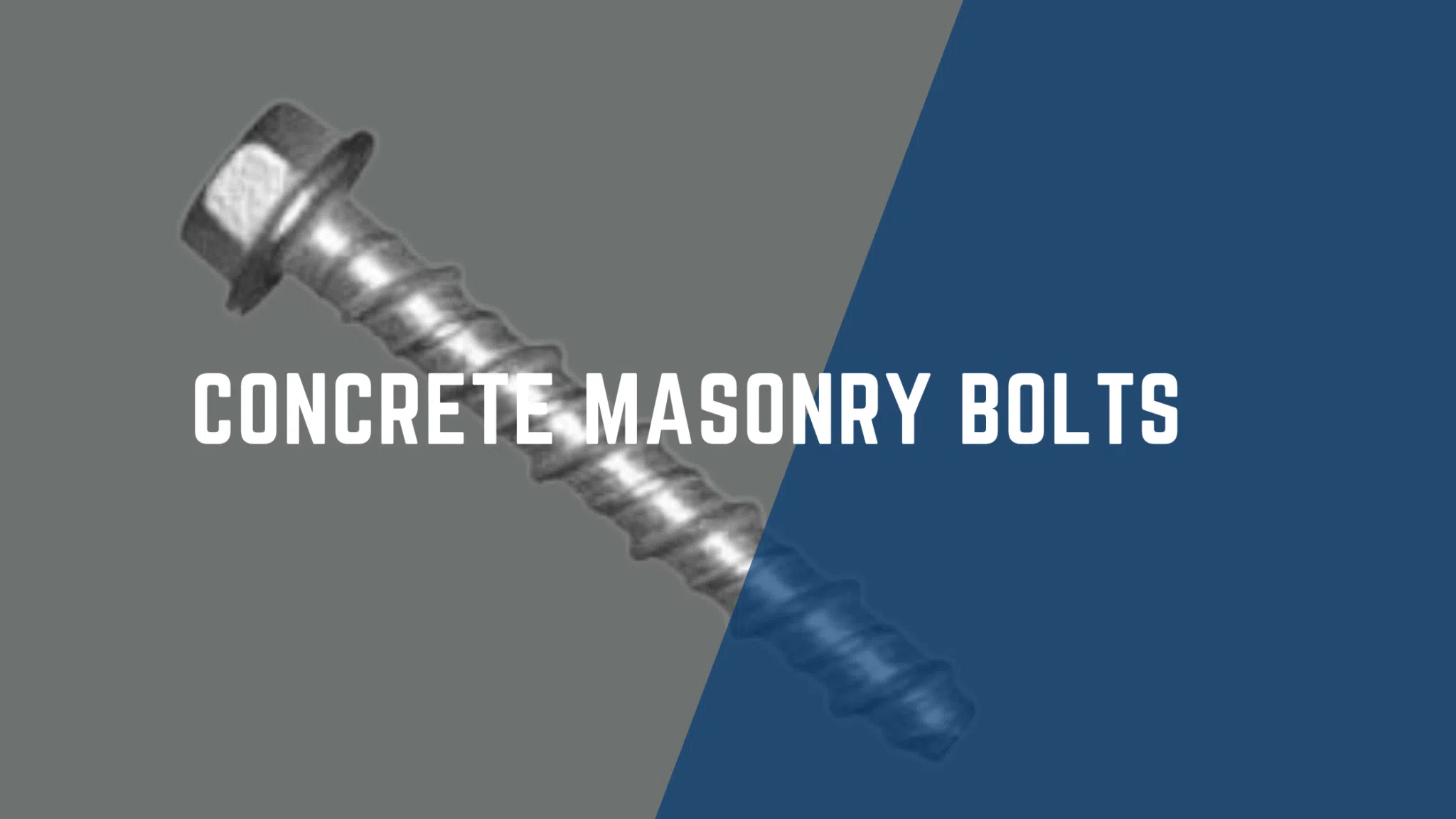
 Decoding the Anatomy of Concrete Masonry Bolts
Decoding the Anatomy of Concrete Masonry Bolts The Role of Concrete Masonry Bolts in Structural Integrity
The Role of Concrete Masonry Bolts in Structural Integrity Navigating the Market: How to Choose Wisely
Navigating the Market: How to Choose Wisely